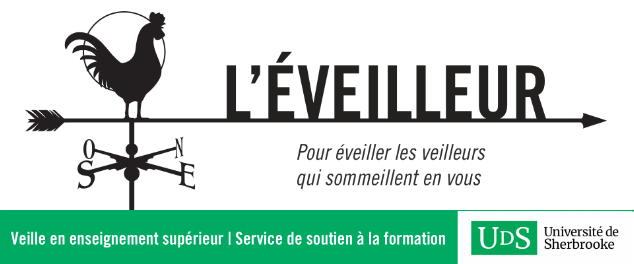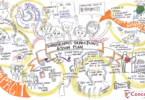Le Chronicle of Higher Education intitulait son numéro du 11 janvier 2017 The Post-Truth Issue (on remarque ici le jeu de mot sur “issue“: le numéro d’un magazine et LA question, la thématique dont il faut discuter: This is the issue at hand.) Des articles aux titres comme “When Truth Becomes a Commodity” (où l’auteur trace un parallèle avec la vague de relativisme des années 1960 alors que l’on admettait que la vérité était plurielle), “Know-Nothing Nation” et “Facebook and Falsehood” rendent compte d’un malaise pour le moins important. C’est sans compter des perspectives plus inquiétantes comme “The Far-Right New Offensive Against Academia” [consultation restreinte aux abonnés].
Pour Daniel T. Rodgers, professeur émérite d’histoire de Princeton, la vérité circule désormais comme une marchandise. Chacun peut cliquer sur la version qui lui convient selon ses désirs. Le débat public en souffre forcément:
Finding our way back to the notion of truth as the result of a public process of search and debate and deliberation will not be easy. […] It will take rededication to the goal of bringing the tools of inquiry, research, and collaborative discussion into every level of education, from elementary-school classrooms to graduate-student laboratories and seminars. It will take patient and humble experts, less eager themselves for a marketable sound bite. (Rodgers, 2017)
Une mentalité d’assiégés semble émerger dans les milieux universitaires: c’est EUX (la majorité “ignorante” de moins en moins silencieuse) contre NOUS, les intellectuels qui savent, mais dont l’expertise n’est pas suffisamment reconnue… Pour Nathan Pippenger, candidat au doctorat en théorie politique à UC Berkeley:
“…[W]e are trying to perform democratic politics amid a public debate that has been momentarily captured by a movement characterized by a striking indifference to truth. Importantly, this is not simple manipulation via the familiar top-down channels of talk radio and Fox News, but a spread of pseudofacts disseminated voluntarily, via the horizontal channels of social media, by voters themselves. Researchers have found that far-fetched, easily debunked stories are vastly more popular on Facebook than real news, and that there is a much larger appetite for viral lies on the right.” (Peppinger, 2017)
Justement, les réseaux sociaux où s’inscrivent ces débats refusent de prendre responsabilité pour ce qui peut être considéré comme vrai ou faux:
…Facebook has said that it cannot be an arbiter of truth. It wants to portray itself as a simple service that allows people and businesses to network and communicate, imposing only minimal controls over what they actually say to one another. This means that it has to outsource its judgments on truth — either by relying on “machine learning” or other technical approaches that might identify false information, or by turning to users and outside authorities. (Farrell, 2017)
Mais comme le souligne bien Farrell, le fait de déterminer la véracité d’une nouvelle ne saurait se résumer à un problème technique. Cela comporte nécessairement une dimension politique. Même les algorithmes peuvent comporter des biais idéologiques…
D’où l’importance de continuer à éduquer la population afin de la rendre plus critique.
Graeme Atherton, directeur du National Education Opportunities Network au Royaume-Uni, a dirigé Access to Higher Education: Understanding global inequalities paru en déccembre 2016 chez Palgrave MacMillan. Il croit que les universités doivent ouvrir encore plus grandes leurs portes pour éviter d’être targuées d’élitisme. Il évoque le fait que les initiatives pour faciliter l’accès aux études supérieures ont stagné en Europe et même régressé aux États-Unis:
Higher education, like other established institutions, is being challenged by the rise of populism. It can be argued that at present higher education is on the wrong side of the fence where populism is concerned. It is perceived as part of the elite, rather than a force to address inequality. This perception constrains what higher education can do to challenge populism and the illiberalism at its core which is antithetical to what higher education stands for.
[…]
While widening access to higher education may in the past have been an option which higher education could choose or reject, it is now a necessity in the face of the populist challenge… (Atherton, 2017)
Sources:
Atherton, Graeme, “The imperative of increasing access to university“, University World News, no. 444, 27 janvier 2017
Blumenstyk, Goldie, “The Far Right’s ‘New Offensive Against Academia’“, The Chronicle of Higher Education, 12 janvier 2017
Farrell, Henry, “Facebook and Falsehood“, The Chronicle of Higher Education, 15 janvier 2017
Pippenger, Nathan, “Know-Nothing Nation“, The Chronicle of Higher Education, 15 janvier 2017
Rodgers, Daniel T., “When Truth Becomes a Commodity“, The Chronicle of Higher Education, 15 janvier 2017






